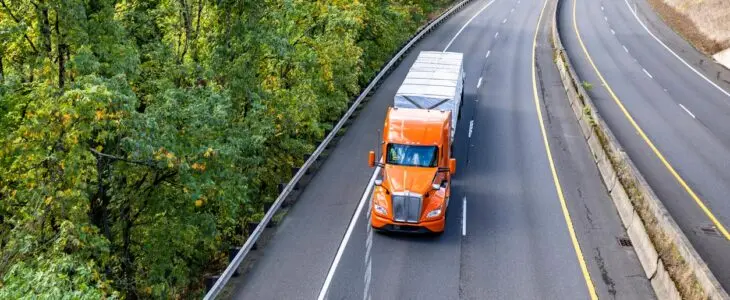Truck accidents rarely involve just the driver. More often, they include a complex web of multiple liable parties. From major trucking companies and truck manufacturers to cargo loaders and maintenance crews — several people or entities can share responsibility. Understanding how to deal with multiple liable parties in a North Dakota truck accident case is critical to seeking fair compensation.
In this article, our North Dakota truck accident attorneys provide an in-depth examination of how fault is determined, how insurance companies operate in these cases, and the immediate steps to take. If you’re a truck accident victim, facing severe injuries, medical bills, or lost wages, getting legal help is essential.
Why Truck Accident Cases Are Much More Complicated Than Car Accidents
Large commercial trucks can cause catastrophic injuries due to their size and weight. That alone makes these cases more serious and costly.
In addition:
- They often involve commercial vehicles regulated by state and federal law.
- More than one company can be involved: the trucking company, maintenance vendors, cargo handlers, or vehicle manufacturers.
- Trucking companies and their insurance carriers usually move fast to limit liability.
That’s what makes it so much harder for truck accident victims to get fair compensation without the help of an experienced legal team.
Who Can Be Held Responsible in a North Dakota Truck Accident?
Accidents involving large trucks are rarely simple. In many cases, more than one person, or one company, played a role in what happened. And under North Dakota law, that matters. You might be dealing with a situation where multiple parties share legal responsibility for the crash and for the harm you’ve suffered.
For example, the truck driver might have been speeding or driving while overtired. (Driver fatigue is still a common cause of these types of wrecks.) But that’s not the whole story. The company that employs that driver may have pushed unrealistic delivery schedules or failed to follow federal hours-of-service rules. If the truck wasn’t properly maintained, the maintenance crew could be part of the picture, too.
Other potentially responsible parties might include:
- Cargo companies that overloaded the truck or failed to secure the shipment correctly
- Vehicle manufacturers that produced faulty brakes, tires, or steering systems
- Other drivers who made sudden or unsafe moves that contributed to a chain-reaction crash
Even when the mistake seems like it came from one person, liability often leads back to multiple sources. That’s why a complete investigation is so important. It’s not just about figuring out what went wrong—it’s about holding the right people accountable.
How Is Fault Determined Among Multiple Parties?
Determining fault in a semi truck accident requires more than just reading a police report.
A full investigation often includes:
- Reviewing black box data from the truck
- Examining the driver’s logs and employer records
- Collecting camera footage and eyewitness accounts
- Hiring crash reconstruction experts
- Checking vehicle maintenance records
This process reveals not only what happened, but also who failed to follow industry standards or federal rules. Investigators can even uncover falsified logs and negligent oversight by supervisors.
North Dakota’s Law on Sharing Fault
North Dakota follows a modified comparative fault rule. Under N.D. Cent. Code § 32-03.2-02, you can still recover damages if you were less than 50% at fault. However, your overall compensation will be reduced by the percentage of fault attributed to you.
That means if you were 20% responsible, and your damages are $100,000, you’d recover $80,000. If multiple parties share fault, you may need to file claims against more than one to pursue full compensation.
Sometimes, depending on the case, joint and several liability may apply. That allows you to collect from one party if the others cannot pay, though this depends on the facts of your case and court findings.
What Makes Claims with Multiple Insurance Companies So Complex?
When several parties are involved, there may be several insurance companies. This can quickly complicate your claim.
Expect insurers to:
- Blame each other or pin fault on you
- Minimize your injuries or property damage
- Delay or deny claims hoping you’ll settle for less
- Coordinated legal representation is critical here.
An experienced truck accident lawyer knows how to handle these tactics and make sure your voice is heard.
Why Victims Need a Truck Accident Lawyer for Multi-Party Claims
Most truck accident claims that involve multiple parties are fiercely defended. Trucking companies often send out their own investigators within hours of a crash.
Your legal team needs to act just as quickly to:
- Preserve logbooks, GPS data, and maintenance records
- Identify every liable party involved
- Work with experts to prove negligence
- Handle personal injury lawsuits and negotiations for fair settlements
Given the complexity of multiple liable parties, securing legal assistance early makes all the difference.
Time Limits Matter — Don’t Wait
North Dakota’s statute of limitations on most personal injury lawsuits, including truck accidents, is six years. But you shouldn’t wait.
Key evidence can disappear. Witnesses forget. Insurance companies build their defenses early.
Starting the legal process now allows time to conduct a thorough investigation, calculate future medical bills and wages lost, and begin meaningful negotiations.
Schedule Your Free Initial Consultation Today
Truck accident victims carry the emotional distress, physical pain, and financial burden long after the accident. Especially when your case involves several at-fault parties or insurance companies refusing responsibility.
If you’re unsure how to deal with multiple liable parties in a North Dakota truck accident case, we’re here to help. Our attorneys in Grand Forks and Minot are experienced in handling serious injury and wrongful death claims related to truck accidents.
Schedule your free consultation today with a personal injury lawyer at Pringle & Herigstad, P.C., and take control of your recovery.
